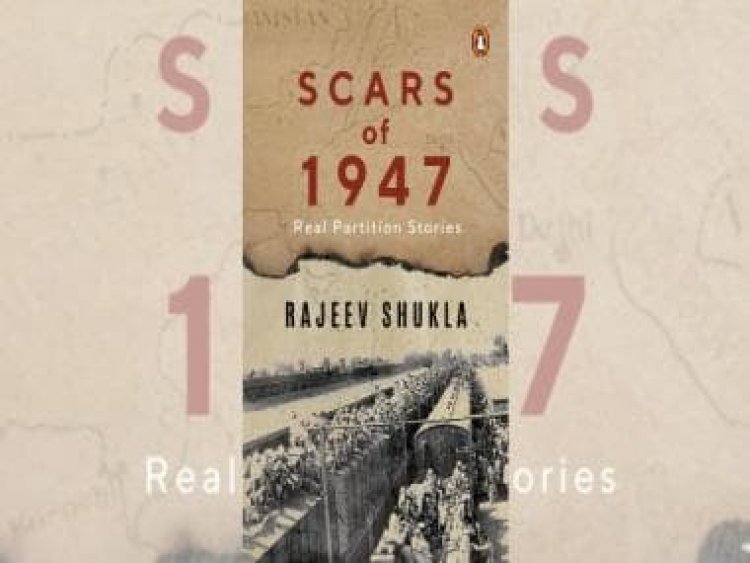Book review: Rajeev Shukla traces stories of pain, loss and a lifetime of yearning in 'Scars of 1947'
Book review: Rajeev Shukla traces stories of pain, loss and a lifetime of yearning in 'Scars of 1947'

When I rented Urmila Matondkar-starrer Pinjar to be watched at home with the family on a lazy Sunday afternoon in 2004, I was only vaguely aware of the film’s theme and had not anticipated a film full of pain and pathos.
For a 14-year-old it felt like a drag, and the stories of rape, murder and unspoken brutalities seemed a bit of a stretch. But growing older, as I got more interested in books and literature I came across Saadat Hasan Manto, Amrita Pritam, Khushwant Singh and other writers of partition.
The stories that once felt unreal and fantastical couldn’t have been shared by so many people, could it? I thought. All these stories by these authors who may not even have met each other in their lifetimes shared the same notes, in their own inimitable style. Partition was real and in front of my eyes.
Oral histories of people who crossed over to the other side and those of who remained or returned feel like lived experiences because of writers who turned them into recorded histories.
Journalist-turned-Congress MP Rajeev Shukla makes an important addition to this list of writers who has collected true accounts of partition survivors over three decades and hundreds of interviews and has written them down in the form of Scars of 1947.
The 150-page book is full of stories told first and second hand to the Rajya Sabha MP, vice president of the Board of Control for Cricket in India (BCCI), and former journalist, Rajeev Shukla.
Despite the constant theme of savagery on both sides of the border that left an estimated 1.2 million dead, including women and children, rays of hope were not lost as people of Hindu, Muslim and Sikh communities put their lives in danger, and even sacrificed in some cases, to save others.
Stories of people who still long for the land left behind also appear frequently in Shukla’s collection, including the one of a “fair-complexioned and pretty woman” in her eighties who came to Pakistan before partition in what was then a rare love marriage between a Muslim man and a Parsi girl.
She requested Shukla to bring a handful of soil from Bombay as she wanted to “kiss it before leaving for her heavenly abode”.
He retells the story of Lahore-born Som Anand, whose family was saved by Maulvi Ahmad and his wife when a mob of Pathans attacked his Model Town house in Lahore. Even though he was eternally grateful to Maulvi Ahmad and his wife for their act, Anand and his family reluctantly decided to leave Lahore and move to Delhi.
It wasn’t just Anand or hundreds others like him who were grieved to leave their ancestral home, but their neighbours like Maulvi Anand too were “not at all happy with the occupancy of the old houses by the new migrants”.
“Though she (Maulvi Ahmad’s wife) had no personal enmity with her new neighbours, she didn’t get along with any of them. She felt as if the city of Lahore had lost its true identity and culture following the emigration of the Hindus and Sikhs.”
Shukla has traced the stories of some of the most iconic figures of a post-parition India, including G.P. Talwar aka Pran Talwar, who established the National Institute of Immunology in New Delhi; Avtar Narain Gujral, father of former prime minister Inder Kumar Gujral and famous painter Satish Gujral; former Delhi CM Madan Lal Khurana; and former prime minister Manmohan Singh.
Shukla has turned decades of oral history into a written one with his book as he interviewed people who were witnesses to the historic event of partition, for which he had to travel to Pakistan for more than twenty times over the course of about 30 years.
The emotional scars on the survivors of the tragic events that unfolded in 1947 are visible in Shukla’s writing and are a reminder to the later generations how politics can trump over human values and lives any given day.
The book, published by Penguin Random House India, is available to buy on online and offline stores at Rs 499.
Read all the Latest News, Trending News, Cricket News, Bollywood News,
India News and Entertainment News here. Follow us on Facebook, Twitter and Instagram.
What's Your Reaction?



























































